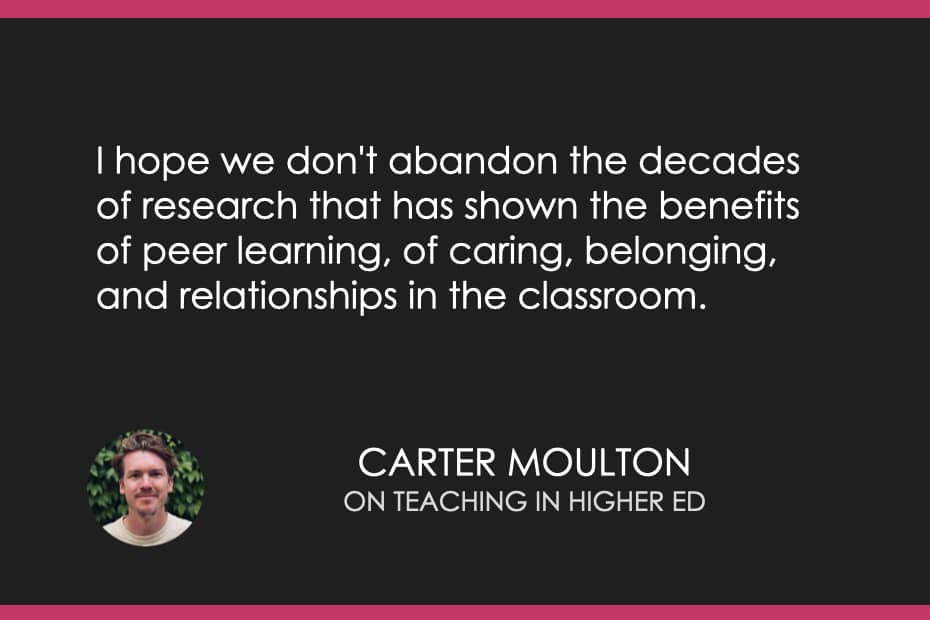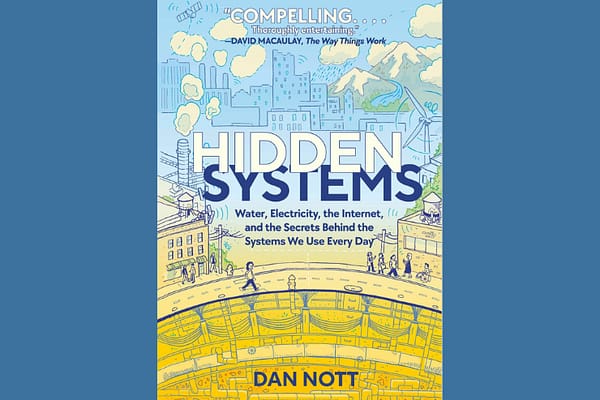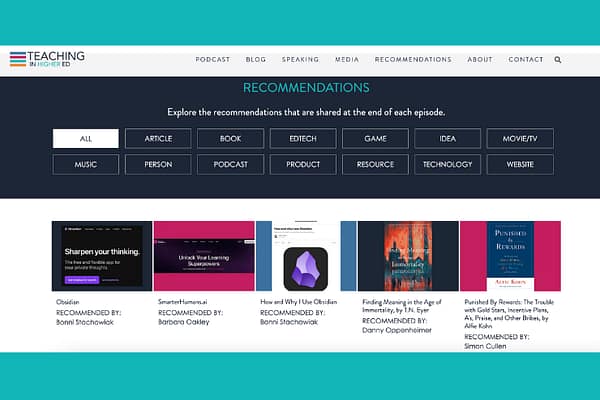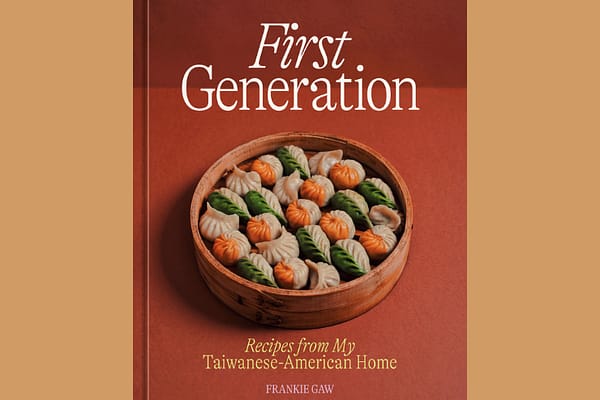Podcast (tihe_podcast):
Play in new window | Download | Transcript
Subscribe: Apple Podcasts | Spotify | RSS | How do I listen to a podcast?
Carter Moulton shares about his Analog Inspiration (AI) card deck and human centered AI in the classroom on episode 593 of the Teaching in Higher Ed podcast.
Quotes from the episode

I'm here to talk a little bit about the Analog Inspiration card deck, which really is a professional development resource under the guise of a game.
-Carter Moulton
I wanted to create something that would bring faculty together and talk with each other and wrestle with these moral and ethical questions.
-Carter Moulton
Those three questions underneath at the bottom of the card are really just trying to foster that critical thinking with students about what it is they're making and what it is they're doing and how they're engaging with AI.
-Carter Moulton
I hope we don't abandon the decades of research that has shown the benefits of peer learning, of caring, belonging, and relationships in the classroom.
-Carter Moulton






